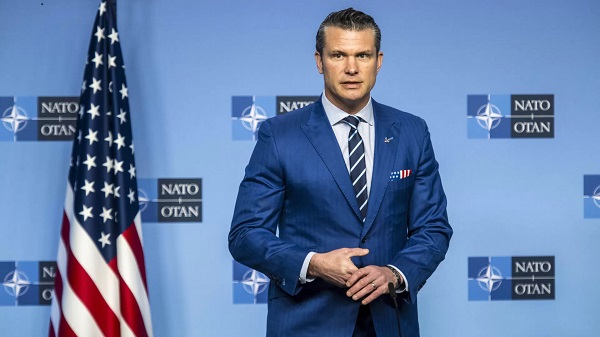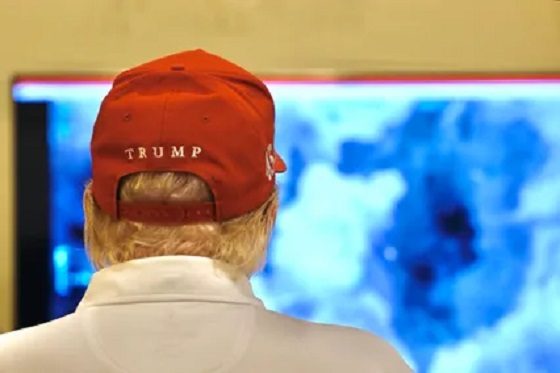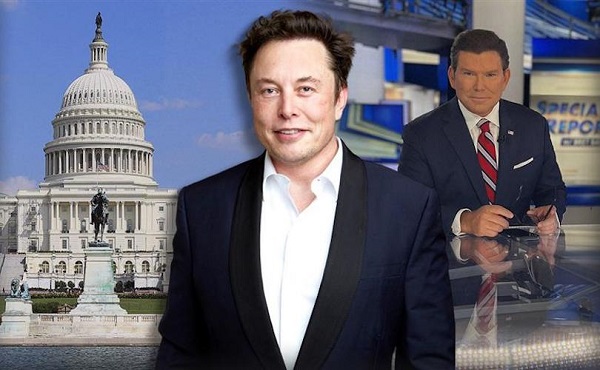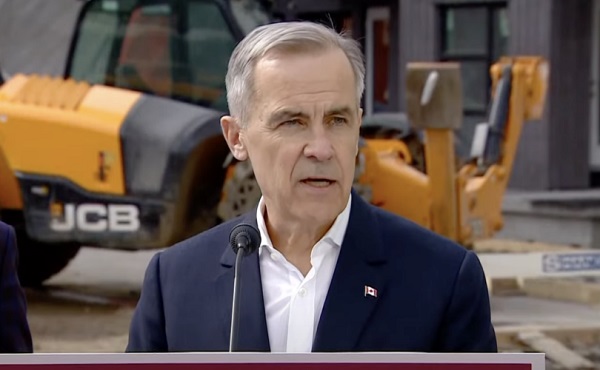conflict
U.S. Tells Europe To Handle Its Own Defense

The U.S. is no longer willing to subsidize prosperous countries that won’t defend themselves.
The Trump administration’s foreign policy gambits can be baffling: Why rename the Gulf of Mexico? What is this fixation on annexing Greenland? Does anybody really want to find out what happens if we add Canadians to the U.S. Senate? But the president is right that allies have been allowed to shift the costs of their defense to the United States for decades, and they’ve relied on the U.S. to resolve what are largely European problems. With the U.S. government spending far beyond its means, it’s time for our NATO allies to step up, as U.S. Defense Secretary Pete Hegseth recently suggested.
Blunt Word for Europe
“The United States remains committed to the NATO alliance and to the defense partnership with Europe, full stop,” Hegseth, who served as an infantry officer in Afghanistan and Iraq before taking high-profile roles with Fox News and then with the Trump administration, commented last week at a meeting of the Ukraine Defense Contact Group held in Brussels. “But the United States will no longer tolerate an imbalanced relationship which encourages dependency.”
Hegseth went on to say that any security guarantees negotiated for Ukraine after almost three long years of war between that country and invading Russian forces “must be backed by capable European and non-European troops,” but only “as part of a non-NATO mission….To be clear, as part of any security guarantee, there will not be U.S. troops deployed to Ukraine.”
But what really brought the message home for attendees was when the U.S. defense secretary emphasized that America has security obligations throughout the world, particularly regarding China. That means, with NATO, the U.S. would focus on “empowering Europe to own responsibility for its own security.” To that end, Hegseth urged U.S. allies to exceed the 2-percent-of-GDP target for defense spending set by the alliance—which most fail to meet—and to aim for 5 percent.
Hegseth’s speech threw “the world’s biggest military alliance into disarray,” according to the A.P. But the message wasn’t unanticipated, nor was the reality of competing demands on American resources entirely unappreciated. France’s President Emmanuel Macron quickly called a meeting of European leaders “to discuss European security.” NATO Secretary General Mark Rutte agreed Europe and Canada “have not paid enough over the last 40 years…. The U.S. is rightly asking for a rebalancing of that.”
Poland, which has historical reasons to fears Moscow’s intentions, is already near the 5 percent target for defense. Last March, Poland’s President Andrzej Duda praised the U.S. role in defending Europe and supporting Ukraine, but asked other NATO countries to join his country in building military capability.
Unequal Commitments to Defense
At least since the end of the Cold War, most European countries have skated by on minimal military expenditures, counting on the United States to handle any threats that might emerge. That situation continued even after Russian troops poured into Ukraine.
“The British military—the leading U.S. military ally and Europe’s biggest defense spender—has only around 150 deployable tanks and perhaps a dozen serviceable long-range artillery pieces,” The Wall Street Journal reported in December 2023. “France, the next biggest spender, has fewer than 90 heavy artillery pieces, equivalent to what Russia loses roughly every month on the Ukraine battlefield. Denmark has no heavy artillery, submarines or air-defense systems. Germany’s army has enough ammunition for two days of battle.”
NATO’s last annual report revealed the U.S. represents 53 percent of the GDP of all countries in the alliance. But the U.S. makes 67 percent of alliance defense expenditures. NATO sets a goal for members to spend 2 percent of their GDP on defense. Even with rising tensions, only 11 of the alliance’s 32 members hit that benchmark in that report (the next report should show more meeting the goal).
Among the countries not hitting the 2 percent mark are Canada, France, and Germany—all wealthy countries that could significantly contribute to the alliance’s defense. Germany claims to have hit the 2 percent target in its latest budget. But Canada’s government reportedly told NATO that it “will never” hit the target. Writing about that admission, The Washington Post‘s Amanda Coletta noted that “nearly all of Canada’s 78 Leopard II tanks ‘require extensive maintenance and lack spare parts.'”
In supporting Ukraine, European countries gave somewhat more than the U.S. But Europe emphasized financial and humanitarian aid, so the U.S. has offered slightly more military assistance at €64 billion ($62.1 billion U.S.) compared to Europe’s €62 billion ($65 billion U.S.), according to the Kiel Institute for the World Economy.
The U.S. Can’t Afford To Continue as Europe’s Protector
As Hegseth emphasized in Brussels, the U.S. has security concerns around the world, especially in the Pacific with China, while European worries are more regional. But the U.S. has another big concern: The federal government spends far too much. After entitlements, defense spending is a major recipient of tax dollars—or, more accurately, of money borrowed from the future given the massive deficit. According to the Congressional Budget Office, “the federal budget deficit in fiscal year 2025 is $1.9 trillion. Adjusted to exclude the effects of shifts in the timing of certain payments, the deficit grows to $2.7 trillion by 2035.” Debt will also soar if the gap between spending and receipts continues.
Last year, the Cato Institute broke down federal spending, showing that Medicare, Medicaid, and other health entitlements make up 28 percent of the federal budget, Social Security is 22 percent, defense and income security account for 13 percent each, and net interest on the debt is 11 percent. Everything else makes up the remaining 13 percent. It’s going to be very difficult to balance the federal government’s books without addressing entitlements and defense spending.
Undoubtedly, with the Department of Government Efficiency (DOGE) turning its attention to the Pentagon, loads of waste, fraud, and abuse will be uncovered. But it’s impossible that so much financial mismanagement will be uncovered as to make up for trillions in deficits all by itself. Some priorities will have to be rejiggered to get spending controlled.
So, Hegseth’s blunt reminder to Europeans that their continent is their responsibility to defend is justified. Countries that together almost equal U.S. GDP and are mostly clustered together should be making more serious arrangements for their own defense.
Not all Trump administration pronouncements were so well-considered. The U.S. reportedly plans to meet with Russian envoys to discuss Ukraine’s future—without inviting Ukraine or European allies. That’s presumptuous and runs the risk that Ukraine just won’t stop fighting if it doesn’t like the terms.
In response, Ukraine’s President Volodymyr Zelenskyy called for the creation of an “armed forces of Europe” to defend the continent. French President Macron’s security meeting suggests Europeans are thinking along similar lines.
That could work out for everybody except the Russians. If Europeans assume greater responsibility for defending their continent and for supporting Ukraine, Washington, D.C. would likely be very happy.
|
|
|
conflict
“HELL WILL RAIN DOWN”: Trump unleashes U.S. military on Yemeni Houthis

 MxM News
MxM News
Quick Hit:
President Trump ordered a massive military assault on Iranian-backed Houthi forces in Yemen on Saturday, vowing to unleash “overwhelming lethal force” after months of attacks on American and allied vessels in the Red Sea.
Key Details:
-
Trump announced the strikes in a Truth Social post, stating, “Today, I have ordered the United States Military to launch decisive and powerful Military action against the Houthi terrorists in Yemen.”
-
He criticized former President Joe Biden for failing to contain the Houthis, saying his response was “pathetically weak” and emboldened the group’s ongoing attacks on commercial and military vessels.
-
The U.S. Navy’s USS Harry S. Truman carrier strike group, along with three destroyers and a cruiser, launched the assault, targeting radars, air defenses, and missile systems used to disrupt shipping lanes.
CENTCOM Forces Launch Large Scale Operation Against Iran-Backed Houthis in Yemen
On March 15, U.S. Central Command initiated a series of operations consisting of precision strikes against Iran-backed Houthi targets across Yemen to defend American interests, deter enemies, and… pic.twitter.com/u5yx8WneoG
— U.S. Central Command (@CENTCOM) March 15, 2025
Diving Deeper:
President Trump escalated U.S. military action against Iran-backed Houthi rebels on Saturday, ordering airstrikes on targets in Yemen in response to the group’s repeated attacks on Red Sea shipping. Trump, in a Truth Social post, declared that the U.S. military would not tolerate continued aggression and vowed an overwhelming response.
“The Houthi attack on American vessels will not be tolerated,” Trump wrote. “We will use overwhelming lethal force until we have achieved our objective.” He directly warned the Houthis, stating, “YOUR TIME IS UP, AND YOUR ATTACKS MUST STOP, STARTING TODAY. IF THEY DON’T, HELL WILL RAIN DOWN UPON YOU LIKE NOTHING YOU HAVE EVER SEEN BEFORE!”
The strikes, carried out by U.S. Central Command, targeted missile sites, drone launch facilities, and command centers used by the Houthis to strike commercial and military vessels in the Red Sea. U.S. warships and carrier-based fighter jets participated in the mission, marking a significant escalation in efforts to protect international shipping routes.
Trump also issued a direct warning to Iran, demanding that its support for the Houthis “must end immediately.” Addressing Tehran, Trump wrote, “Do NOT threaten the American People, their President…or Worldwide shipping lanes. If you do, BEWARE, because America will hold you fully accountable and we won’t be nice about it!”
The strikes come after more than a year of escalating attacks by the Houthis, who have targeted over 100 merchant vessels, sunk at least two, and killed multiple sailors since the Israel-Hamas war began. Trump pointed to Biden’s failures in handling the crisis, noting that “it has been over a year since a U.S.-flagged commercial ship safely sailed through the Suez Canal, the Red Sea, or the Gulf of Aden.”
With Trump’s order, the U.S. is making clear that hostile actions in the Red Sea will not go unanswered. As military operations continue, all eyes will be on whether the Houthis and their Iranian backers heed the warning—or face even greater firepower from the U.S. military.
conflict
EU leaders escalate war rhetoric with Russia in stark departure from Trump’s peace push

From LifeSiteNews
By Frank Wright
Germany’s leading academic authority on its army has said that Europe’s depleted armed forces would be “washed away” by Russia in weeks, and that it could take at least 15 years before Germany was ready for war.
Last night’s European Council summit responded to Donald Trump’s moves to end the war in Ukraine with a commitment to massive European rearmament.
The EU Council published a statement that, “In 2025, it will provide Ukraine with EUR 30.6 billion” and “increased military support” to Ukraine and proposes “a new EU instrument to provide Member States with loans backed by the EU budget of up to EUR 150 billion” in support to “non-EU members” to rebuild “defense.”
The extraordinary announcement comes two days after EU Chief Commissioner Ursula von der Leyen, an elected MEP appointed to the powerful leadership position by other MEPs, proposed to “rearm Europe” with the release of up to 800 billion euros ($867 billion) in funding. Details on how the money will be raised are set to be finalized later in March.
European and British statements on this issue directly contradict and defy moves towards a durable peace made by the Trump administration. They have also been met with stern rebukes from Russia.
Reuters reported two days ago that Trump had vowed to “end this senseless war” and “stop the killing”:
Trump also said he had been in “serious discussions with Russia” and had “received strong signals that they are ready for peace.”
“Wouldn’t that be beautiful?” he said. “It’s time to stop this madness. It’s time to halt the killing. It’s time to end this senseless war. If you want to end wars you have to talk to both sides.”
Trump is attempting to return the Western world back to the traditions of international diplomacy before and during international conflicts to save lives and prevent unnecessary massive destruction.
This is a major turn away from the top priority given to military power in recent decades. That appears to have been driven by globalist forces, including giant military-industrial complexes, moneylenders, and globalist investment companies like Blackrock who greatly profit from continuous war.
The Russians responded with “concern” over the “remilitarization” of Europe, with spokesman Dmitry Peskov saying the “confrontational rhetoric and confrontational thinking” from Europe goes against efforts to reach a peaceful resolution to the Ukraine conflict.
France – nuclear escalation?
On Wednesday evening French President Emmanuel Macron made a direct address to the French nation in which he described Russia as a “threat to France and Europe” and said he had decided “to open the strategic debate on the protection of our allies on the European continent by our (nuclear) deterrent.” France is the only nuclear armed member state in the EU.
Russian Foreign Minister Sergei Lavrov said Macron’s speech was a “threat to Russia.”
“If he considers us a threat, gathers a meeting of the chiefs of staff of European countries and Britain, says that it is necessary to use nuclear weapons, to prepare for the use of nuclear weapons against Russia, this is certainly a threat,” Lavrov stated.
Russian President Vladimir Putin has repeatedly emphasized Russia has no intention of invading any other nation or trying to resurrect the Soviet Union. It has been having trouble enough trying to protect endangered Russian-speaking Ukrainians in Eastern Ukraine for the past three years.
There has been no evidence indicating Russia is planning or even capable of invading and conquering other nations, but it has been forced to prepare to repel possible attacks in response to increasing hostility and unwillingness to dialogue from Western globalist leaders.
Reliable analysts have emphasized that the CIA and other deep state entities in the U.S. and Europe, in order to justify their massive military spending and Russian regime change goal, are the ones who have been spreading false rumors that Russia has expansionist objectives.
Putin referred to Macron’s comments with a warning from history:
Some people still can’t sit still. There are still people who want to go back to the times of Napoleon, forgetting how it ended.
In a further sign that the U.S. is pursuing peace independently of the Europeans, Trump has suspended all military aid to Ukraine and cut off U.S. intelligence sharing, moves which dramatically reduce the war fighting capability of the Zelensky regime.
The EU-led initiative to fund European rearmament comes days after U.K. Prime Minister Keir Starmer called for a “coalition of the willing” to send troops to Ukraine and continue the supply of arms – whilst talk increases of Zelensky himself being replaced.
“We have to learn from the mistakes of the past, we cannot accept a weak deal which Russia can breach with ease, instead any deal must be backed by strength,” Starmer said, while failing to mention any nations actually willing to join his initiative. So far, none have – though suggestions have been made.
Western nations have been the ones breaching one agreement after another with Russia. Some of those are the promise to not expand NATO “one inch eastward” at the time of the dissolution of the Soviet Union, plus the April 1,2022 Ukraine/Russia initialed agreement in Istanbul to end the Ukraine war, among others.
Starmer’s claim to place “boots on the ground, and planes in the air” did not attract any pledges of support from any European nation. A U.K. deal was signed agreeing to a “loan” of over £1.5 billion ($1.94 billion approx.) to permit Ukraine to purchase British missiles, which have not yet been manufactured and could not in fact be aimed or fired without U.S. intelligence and guidance systems.
Starmer’s bold statements produced a stern response from Russia, whose chief diplomat reminded the world that any placement of NATO troops in Ukraine would be seen as a declaration of war.
Speaking ahead of yesterday’s EU-led Ukraine summit, Lavrov told reporters in Moscow, “We see no room for compromise,” explaining that sending European troops to Ukraine would mean the “undisguised involvement of NATO countries in a war against the Russian Federation. It’s impossible to allow this.”
Responding to Macron’s televised address, Lavrov added that Macron wished to “fight Russia,” explaining the thinking behind the French president’s outburst:
They said directly “We need to conquer Russia, we need to defeat Russia.”
He [Macron] apparently wants the same thing, but for some reason he says that we need to fight Russia so that it does not defeat France.
Rhetoric and reality
The reality of European and British military capability is simply not reflected in any of these statements. Reports over the last few years have consistently shown that there is in fact no realistic European military power to confront the Russians.
Germany’s leading academic authority on its army has said that Europe’s depleted armed forces would be “washed away” by Russia in weeks, and that it could take at least 15 years before Germany was ready for war.
Speaking at a Berlin defense conference in November 2023, German historian Sönke Neitzel told military chiefs that in the case of a war with Russia, Germany’s soldiers “can only die” in a war they will certainly lose:
We are going to stand by the coffins at the soldiers’ graves and we are going to be asked: “What have you done?” We will have to explain to the mothers and the fathers why the soldiers could not fulfill their jobs. And at the moment we can only die gallantly if there’s a war.
Neitzel warned that men will be sent to certain death by their political leaders:
It’s very clear: if our armed forces are going to fight, they will die without drones, air defenses, without enough supplies. Are we now clear enough on our message [to Germany’s leaders]? They are going to die and it’s your responsibility.
In an updated report published March 7, Bloomberg reports that Europe’s “undersized and fragmented” forces would run out of ammunition within days and cannot manufacture sufficient gunpowder.
“Europe’s Defenses Risk Faltering Within Weeks Without US Support” the report says, noting that, “If attacked, Europe’s ammunition stockpiles could run low within days and rearming will take years.”
A report from the U.K.’s Guardian noted last week that the EU “spends more on Russian oil and gas than financial aid to Ukraine,” saying it had purchased “22 billion euros of fossil fuels” in 2024, against “19 billion in aid” to Kiev.
Real war not realistic
Why are EU and British leaders talking war with no realistic chance of fighting one? U.S. moves to scale down and possibly withdraw from NATO spell the end of the alliance, of course, but the wider implications are obvious for the remaining liberal-globalist governments.
Britain, France, Germany, and the EU itself are led by a political establishment whose only hope of unity is in forging a war coalition in a battle they cannot win. As the “Russianist” Professor Gilbert Doctorow has noted, this spells doom for a liberal coalition which has decided to oppose the United States.
“We have moved on from observations of people like myself from the sidelines saying that the leadership in Europe is not living in the real world but they’re living in a bubble,” Doctorow told Judge Napolitano this week.
“What we have now is the end game – and they have created it for themselves.”
The Ukraine war was never going to be won, and a new war between Russia and the liberals of Europe likewise has no basis in military reality. The moves by these failing states is a desperate bid for unity and relevance in a world which no longer corresponds to their values.
Alone among 27 EU member states in opposing increased arms supplies to Ukraine is Hungary. Its leader, Viktor Orbán, famously defined the values of the liberal order as “LGBT, open borders, and war.”
To protect itself from the widespread rejection of these “values” and the globalist agenda they project, the British and EU liberals have implemented totalitarian restrictions on free speech – and even thought and prayer – and have effectively suspended democracy in refusing to respect the results of elections while dramatically increasing digital surveillance and censorship efforts to maintain control of a narrative which has parted company with reality.
The EU initiative to do so is ridiculously called “The European Democracy Shield.”
As Doctorow told Judge Napolitano, it can only be a matter of time before the pro-war parties without an army part company with political power, too. The outbreak of peace is fatal to them, as these leaders have all invested their political capital in the black hole of crime and corruption which is another ugly dimension of reality to the failed proxy war in Ukraine.
Leaders like Von der Leyen, Macron, and Starmer do not fear the lights going out all over Europe. They fear the illumination of the darkness they have used their nations’ wealth to fund in Ukraine, which has been defended by years of outrageous lies. Having fought so long to keep their nations in the dark, the European liberal order is panicked into talk of Armageddon by the fear of the lights coming on at last. It is the end of their world that is nigh. Not ours.
-

 Business1 day ago
Business1 day agoFeds Spent Roughly $1 Billion To Conduct Survey That Could’ve Been Done For $10,000, Musk Says
-

 2025 Federal Election2 days ago
2025 Federal Election2 days agoChinese Gangs Dominate Canada: Why Will Voters Give Liberals Another Term?
-

 Alberta16 hours ago
Alberta16 hours agoPhoto radar to be restricted to School, Playground, and Construction Zones as Alberta ends photo radar era
-

 Health19 hours ago
Health19 hours agoRFK Jr. Drops Stunning Vaccine Announcement
-

 Alberta10 hours ago
Alberta10 hours agoProvince announces plans for nine new ‘urgent care centres’ – redirecting 200,000 hospital visits
-

 Business8 hours ago
Business8 hours agoElon Musk, DOGE officials reveal ‘astonishing’ government waste, fraud in viral interview
-

 Energy2 days ago
Energy2 days agoEnergy, climate, and economics — A smarter path for Canada
-

 2025 Federal Election2 days ago
2025 Federal Election2 days agoFool Me Once: The Cost of Carney–Trudeau Tax Games






